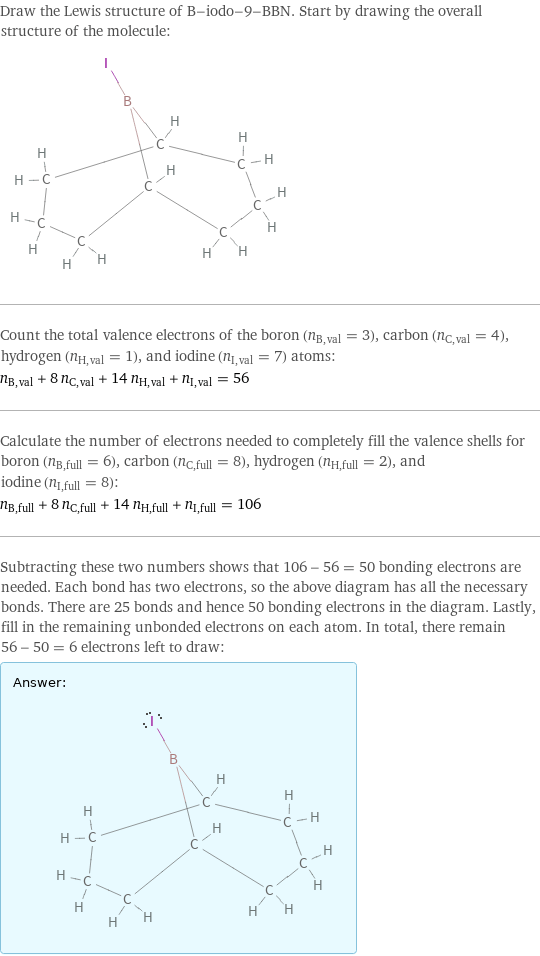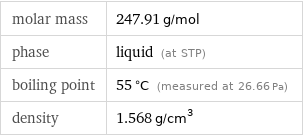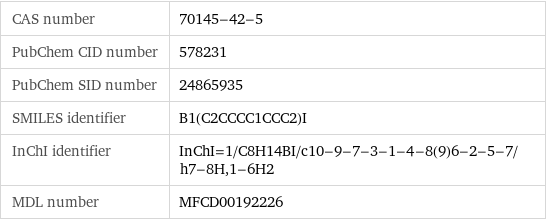Input interpretation

B-iodo-9-BBN
Chemical names and formulas
![formula | C_8H_14BI name | B-iodo-9-BBN IUPAC name | 9-iodo-9-borabicyclo[3.3.1]nonane alternate names | 9-iodo-9-borabicyclo[3.3.1]nonane mass fractions | B (boron) 4.36% | C (carbon) 38.8% | H (hydrogen) 5.69% | I (iodine) 51.2%](../image_source/64c807af85cebbfc4a7e08cb7023b261.png)
formula | C_8H_14BI name | B-iodo-9-BBN IUPAC name | 9-iodo-9-borabicyclo[3.3.1]nonane alternate names | 9-iodo-9-borabicyclo[3.3.1]nonane mass fractions | B (boron) 4.36% | C (carbon) 38.8% | H (hydrogen) 5.69% | I (iodine) 51.2%
Lewis structure

Draw the Lewis structure of B-iodo-9-BBN. Start by drawing the overall structure of the molecule: Count the total valence electrons of the boron (n_B, val = 3), carbon (n_C, val = 4), hydrogen (n_H, val = 1), and iodine (n_I, val = 7) atoms: n_B, val + 8 n_C, val + 14 n_H, val + n_I, val = 56 Calculate the number of electrons needed to completely fill the valence shells for boron (n_B, full = 6), carbon (n_C, full = 8), hydrogen (n_H, full = 2), and iodine (n_I, full = 8): n_B, full + 8 n_C, full + 14 n_H, full + n_I, full = 106 Subtracting these two numbers shows that 106 - 56 = 50 bonding electrons are needed. Each bond has two electrons, so the above diagram has all the necessary bonds. There are 25 bonds and hence 50 bonding electrons in the diagram. Lastly, fill in the remaining unbonded electrons on each atom. In total, there remain 56 - 50 = 6 electrons left to draw: Answer: | |
Basic properties

molar mass | 247.91 g/mol phase | liquid (at STP) boiling point | 55 °C (measured at 26.66 Pa) density | 1.568 g/cm^3
Units

Liquid properties (at STP)

density | 1.568 g/cm^3
Units

Chemical identifiers

CAS number | 70145-42-5 PubChem CID number | 578231 PubChem SID number | 24865935 SMILES identifier | B1(C2CCCC1CCC2)I InChI identifier | InChI=1/C8H14BI/c10-9-7-3-1-4-8(9)6-2-5-7/h7-8H, 1-6H2 MDL number | MFCD00192226